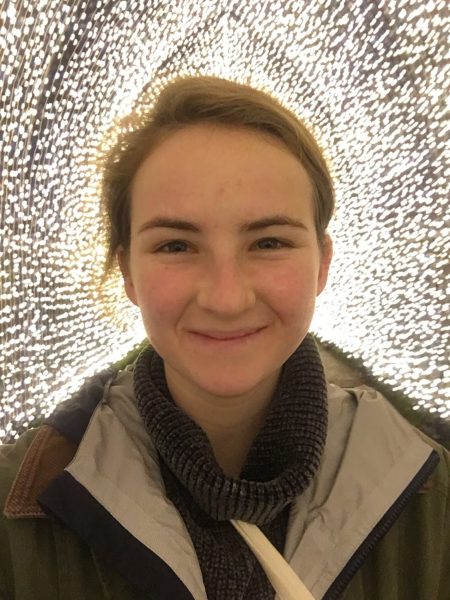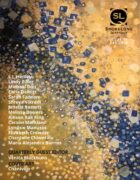I have to ask: Where were you and what were you doing when you first came up with the idea of Jesus Christ reincarnated as an armadillo?
This story actually started life as an exercise for a screenwriting class. We were given a photo and had to construct a story from it. The picture happened to be a group of kids standing around a hole in the ground with one kid holding aloft this dead armadillo. It reminded me of the sort of stuff my siblings and I used to do—we handled a lot of dead animals growing up—and the elaborate burial rituals we’d go through for dead lizards or birds that flew into the windows. And then from there … I’m not sure how I made the leap to the reincarnation of Jesus. I think part of it might have been some kind of pre-election, “Is there a God?” existential crisis.
The Resurrection of Jesus and The Second Coming are central devices in “Armadillo Jesus.” What drew you to them and how prominently (or not) does your own spirituality figure into your writing?
When I was writing this piece, I was trying to write about home, and the emphasis on the Christian tropes you mention came about as a result of that. Where I’m from, you can’t spit without hitting a church, so religion is deeply tied to my sense of place. Plus, there’s just something appealing to me about interrogating narratives that have been passed down through the ages, whether it’s religion or fairytales or history. I’d say spirituality doesn’t figure prominently in my writing—I’m not a super spiritual person, although I did listen to George Saunders lecture once, and became a Buddhist for like a day. Do you ever go through phases where you get hooked on a specific concept for a period of time? There was one point where I couldn’t stop writing about ghosts. Then alligators. I’ve been on a real Jesus kick lately, although I’m not sure why.
The story is full of visceral imagery: the pope hat made out of a napkin; the little kids mouths turning blue from Blue Raspberry Icees; the shredded armadillo’s “leaking innards,” to name a few. Tell us something we might not have expected about your creative process and approach to storytelling.
I’m glad you pointed to those images—I find that as a storyteller, I lean heavily into the visual, I think partly because I’m highly influenced by film. I enjoy the challenge of trying to craft specific images that fit the story. The stories that bowl me over are often the ones that work in this vein. The writing of Karen Russell, for example, which has so many weird, incredible visual moments. My approach to storytelling is still developing, I think (I hope), but I’ve noticed recently that I’m a lot more interested in the short, short form. I’d rather say something in three hundred words than three thousand. My parents would probably be like, “That’s because nobody in your generation can focus now,” but I actually think it’s more a way to cut through the noise. Other than that, I’d say that my approach to storytelling is to always include a little blood when I can get away with it.
The story ends on a poignant moment of tenderness and wishful certainty, perhaps a kind of faith in and of itself that children often display. What have you wished for with a similar kind of intensity and did you end up getting what you wanted?
I like the way you put that—I think so much of childhood, and so much of what I enjoy about writing stories with children, is that “wishful certainty.” When you’re a kid, it really seems sometimes like you can bring things to fruition just by the force of your belief. When I was younger, I’d wish for another little sister every time my mom was pregnant. I got three little brothers in a row. Total letdown. In more recent times, I wished intensely for a Biden victory. Bit more successful with that one.
It’s the morning of the fourth day. We overhear one line of dialogue—what is it?
Hmm. I’ve been avoiding this question for the better part of a week. That fourth morning is a Schrödinger’s cat setup to me—I’m not sure if the armadillo is dead or alive. I’m in the crowd with the kids, waiting to see, peering over shoulders. I guess I don’t hear any dialogue, just the collective holding of breath.



 The core workshop of SmokeLong Fitness is all in writing, so you can take part from anywhere at anytime. We are excited about creating a supportive, consistent and structured environment for flash writers to work on their craft in a community. We are thrilled and proud to say that our workshop participants have won, placed, or been listed in every major flash competition. Community works.
The core workshop of SmokeLong Fitness is all in writing, so you can take part from anywhere at anytime. We are excited about creating a supportive, consistent and structured environment for flash writers to work on their craft in a community. We are thrilled and proud to say that our workshop participants have won, placed, or been listed in every major flash competition. Community works.